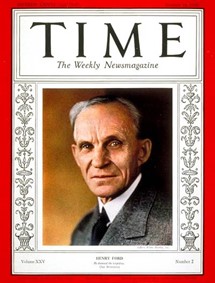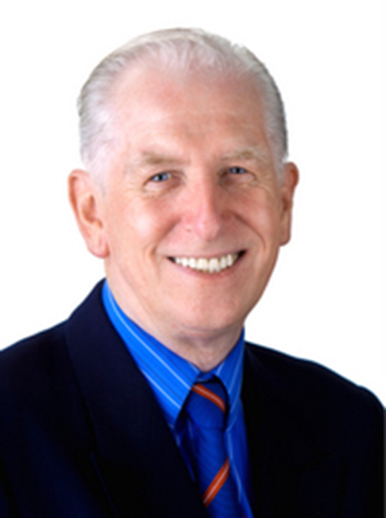It’s About Time
By Dr Charles Margerison
Psychologist
The Quest For Time
The phrase, ‘it’s about time’ has been around for centuries. Indeed, Shakespeare may have invented the expression. Some people have taken it seriously and achieved fame and fortune as a result. Others let time slip by and with it their opportunities also disappeared. Galileo and Einstein searched amongst the stars for it.

No doubt, Mozart focused on it, as he only had 35 years in which to complete his masterpieces. Charles Darwin and Dr Marie Curie would also have realized how important time was. Leaders in major wars like Napoleon and Churchill knew that time could be the real enemy.
Entrepreneurs like Thomas Edison and Andrew Carnegie discovered that time was money. Henry Ford, the founder of the great motor car empire said, ‘it has been my observation that most people get ahead during the time that others waste’.
How Amazing People Have Used Time
Hans Wilsdorf, the founder of Rolex, made a very successful business out of it, by producing beautiful watches and clocks.
Mother Theresa once declared “Yesterday is gone. Tomorrow has not yet come. We have only today. Let us begin”.
The great inventor Benjamin Franklin once stated that “Lost time is never found again.”
Time is a means of measuring inputs and outputs. Some people put in 20% effort and gain an 80% or more output in terms of achievement. Other people can put in 80% or more effort and only gain 20% in terms of a return, compared to others. Time can be converted into something of value.
Types of Time
 So, how can we use our time more effectively? If we look at time for work and time for hobbies and relaxation, we can make the following assumptions:
So, how can we use our time more effectively? If we look at time for work and time for hobbies and relaxation, we can make the following assumptions:
Work Hours
Assuming that we may work for 40 years and, during that time on average, we can work for 40 weeks of a year at 40 hours a week, then we will have accomplished 64,000 hours of experience. It maybe repetitive experience if we have only one or two roles during that period. However, if we have about 10 different major roles, then we would have between 5000 – 7000 hours experience in these areas. That means we will have, via learning from action, enough time to gain a high level of mastery in those roles.
Hobbies and Interests Hours
Assuming that we have 50 weeks of the year for our hobbies and that we spend on average 10 hours per week on them for 50 years, then we have 25,000 hours of experience. This may be in totally different areas from those in which we earn our living. So, people use their time to develop expertise in gardening, or singing, for example.
Family Hours
Once we have children, a large number of hours are allocated to their welfare from feeding, cooking, cleaning, educating and playing. The number of hours can vary, from a mother who stays at home to bring up her family, to parents who are externally employed. As an average, with 2 or 3 children, over a period of 20 years, there can be 50,000 to 100,000 hours involved.
Total Hours
In total, that comes to nearly 150,000 to 200,000 hours in total, plus the time we use for travelling and relaxing.
Use of Time
In my research into the lives and achievements of over 500 amazing people, there is one consistent theme. They all used their time well. Coco Chanel, who developed a very successful business empire said, “don’t spend time beating on a wall, hoping to transform it into a door”.
In short, identify what you can do to convert opportunities into achievements and concentrate on those activities. It is clear that amazing people discovered a skill where they could excel and kept going until they succeeded. Indeed, it can be said that some of them were so dedicated that they may have had what is called an ‘obsessive compulsive’ type of personality. In effect, they repeated their efforts until they gained a high level of skill and mastery in order to be the very best they could be. Let us look at some of the key points that amazing people focused upon and apply them to your situation.
Output Dates
 It is clear that amazing people focused on dates for achieving important outputs.Henry Ford introduced the motor car assembly line where people had specific jobs which were done in a systematic way to ensure time was used effectively.
It is clear that amazing people focused on dates for achieving important outputs.Henry Ford introduced the motor car assembly line where people had specific jobs which were done in a systematic way to ensure time was used effectively.
Thomas Edison introduced the principle of the effective use of time management in research and development. He established project groups, where each team had resources allocated and were assessed by their outputs.
Even creative geniuses like Mozart focused on the best use of time. In his case, he had to produce his music masterpieces in time for concerts given to royalty and people of influence, as he toured from country to country.
Past, Present or Future
The interesting thing about amazing people is how they moved between all three time periods. Most of them had a very keen sense of what had gone before them and were able to learn from people and events. But, they were able to adapt that to their present and work effectively to create something of value with an innovative eye on the future.
An example in medical practice was Dr. Jenner who developed vaccination. He was aware of the history of efforts to cure small pox, and also the local tales in the villages about so called ‘miracle cures’. But, it was when he listened to one of his patients describe her own experience that the idea of a system of prevention came to his mind. He then went on to develop plans for the widespread use of vaccinations.
Focused Impatience
It is clear that many of the amazing people were often impatient. They knew that time was precious. They could never reclaim yesterday. Indeed, time was money. In the case of business leaders, they were fighting against time to produce and sell their products. They knew that if their cash ran out, then their business would close.
People like Henry Ford, and William Boeing put pressure on people to perform. In the 2nd World War, Winston Churchill used to send notes to people with a sticker on the top saying ‘Action This Day’. He knew that delays could cost thousands of lives.
 Time For Action
Time For Action
So, what are you impatient about? What will you do about it? The clock is ticking for everyone. How many times have you heard people say, ‘It’s about time that we made a change’. Often the resolution is not acted upon to bring about an improvement.
You can start to change that by indicating what you aim to achieve and allocating a date. That is the start point for planning how you will get there with the steps and stages along the way.
All the amazing people that I have studied and written about used their time well to achieve their objectives. Understanding how people like Michelangelo, Dr. Marie Curie, Helen Keller, and President Lincoln worked, can teach us a lot about how to use our time effectively.

In the book Amazing Careers, I have presented more than 20 examples of people who converted opportunities into achievements. Each one of them provides inspirational examples of what can be done.






 Time For Action
Time For Action


